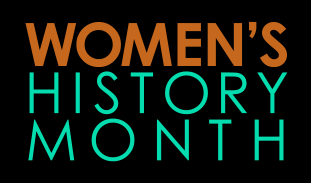Famous Women in Psychology
March is Women’s History Month. In the field of mental health, many women have made significant accomplishments and contributions, even though it seems most people primarily recognize the names of men who have been involved in mental health throughout history. Famous women in psychology began their work in the 1800s and continue to provide the research and innovations that are so important to the field.
Margaret Floy Washburn
Technically, Washburn was the first woman to earn a doctoral degree in psychology in the US. She was awarded the degree in 1894 by Cornell University, one of the few institutions that accepted females as graduate students. Washburn spent much of her career teaching at Vassar College and was also the author of several books that have been instrumental in the field of mental health.
Washburn involved many of her undergraduate students, all women, in her research and writing. Her first book was one of the earliest and most successful textbooks in comparative psychology, The Animal Mind. By 1903, Washburn was ranked among the top 50 psychologists in the country. In 1921, she was the second woman to be elected president of the American Psychological Association and was elected to the National Academy of Science in 1931.
Mary Whiton Calkins
Calkins also completed the work toward her doctoral degree in 1894, but she studied at Harvard, which refused to grant her the degree because she was a woman. Having earned her BA at Smith College, she began teaching at Wellesley College in 1887. Her work in psychology and philosophy was recognized early and she became the first woman elected president of the American Psychological Association in 1905. By 1908, Calkins was ranked 12th on the list of the top 50 psychologists in the country.
Calkins is known for inventing the paired-associates technique for studying learning and memory as well as for founding one of the first psychology laboratories. She also was a prolific writer, having authored 4 books and over 100 articles on dream analysis, self-psychology, memory, and consciousness.
Elisabeth Kübler-Ross
Author of what is now known as the five stages of grief, Kübler-Ross was born in Switzerland in 1926 and became a pioneer in the study of near-death experiences. She is perhaps best well-known for her book, On Death and Dying, in which she first discussed the stages of grief, denial, anger, bargaining, depression, and acceptance, as a pattern of adjustment. Today many business organizations use these stages, which have been adopted into The Kübler-Ross Change Curve™ to train their employees on change and loss.
Kübler-Ross was also a pioneer in the hospice movement. She helped establish more than fifty hospices around the world in the 1970s and 1980s. In 1985, she established the world’s first prison hospice, for the California State Prison in Vacaville. Kübler-Ross had been trying to start an AIDS hospice for abandoned babies when an arsonist burned down her house. She retired shortly afterwards.
Mamie Phipps Clark
Clark was born into a comfortable, middle-class family in Arkansas, but still faced challenges around stereotypes and segregation as she attempted to earn her degrees and secure meaningful work in the field of psychology. In fact, Clark was the second black person and the first black woman to earn a doctorate in psychology at Columbia University. Clark’s work would go on to help children and to influence landmark segregation decisions.
She combined the study of child development and racial prejudice throughout her career as she helped the field incorporate the felt experience of childhood racism. Her work in social psychology was instrumental in the civil rights movement as well, as her research and testimony influenced the decision to end school segregation in the 1954 case of Brown v. Board of Education.
Marsha M. Linehan
Linehan is known for extensive research and application in the areas of drug abuse, suicidal behaviors, and borderline personality disorder. She developed Dialectical Behavior Therapy and founded organizations dedicated to mental health, including Behavioral Tech, LLC, and the Linehan Institute. Dialectical Behavior Therapy (DBT) is a treatment that was originally developed for suicidal behaviors and that has since been expanded to the treatment of borderline personality disorder and other severe and complex mental disorders.
Linehan recently retired and is now Professor Emeritus of Psychology in the Department of Psychology at the University of Washington and Director Emeritus of the Behavioral Research and Therapy Clinics, which she also founded. Her research projects have been instrumental in developing new treatments for severely disordered and multi-diagnostic and suicidal populations. She has also worked to develop effective models for transferring science-based treatments to the clinical community.
Ana Moreno
Among the women who contribute significantly to the mental health of others, Moreno has been working in the mental health field for over 18 years. She is currently a therapeutic consultant, psychotherapist, addiction specialist, and interventionist at R&A Therapeutic Partners. Moreno’s work focuses on loving people back to health and eliminating the shame, blame, and guilty that usually is involved with substance use disorders and mental health issues.
Contact R&A Therapeutic Partners for Help
At R&A Therapeutic Partners, therapeutic consultants Ana Moreno and Raymond Estefania support you and your mental health needs, helping you find the path that works best for you. To keep you safe and healthy, we offer in-office and telehealth options during COVID-19. We encourage you to contact the Miami therapeutic consultants at R&A Therapeutic Partners to learn more about how we can help you. Call us at 786-452-7352 to schedule your appointment.
At R&A Therapeutic Partners Raymond Estefania and Ana Moreno specialize in substance use and mental health disorder evaluations, treatment, intervention and therapeutic/educational consulting for clients throughout the greater South Florida area, as well as nationally and internationally. For more resources and information please visit Therapeutic-Partners.com or on Facebook.

